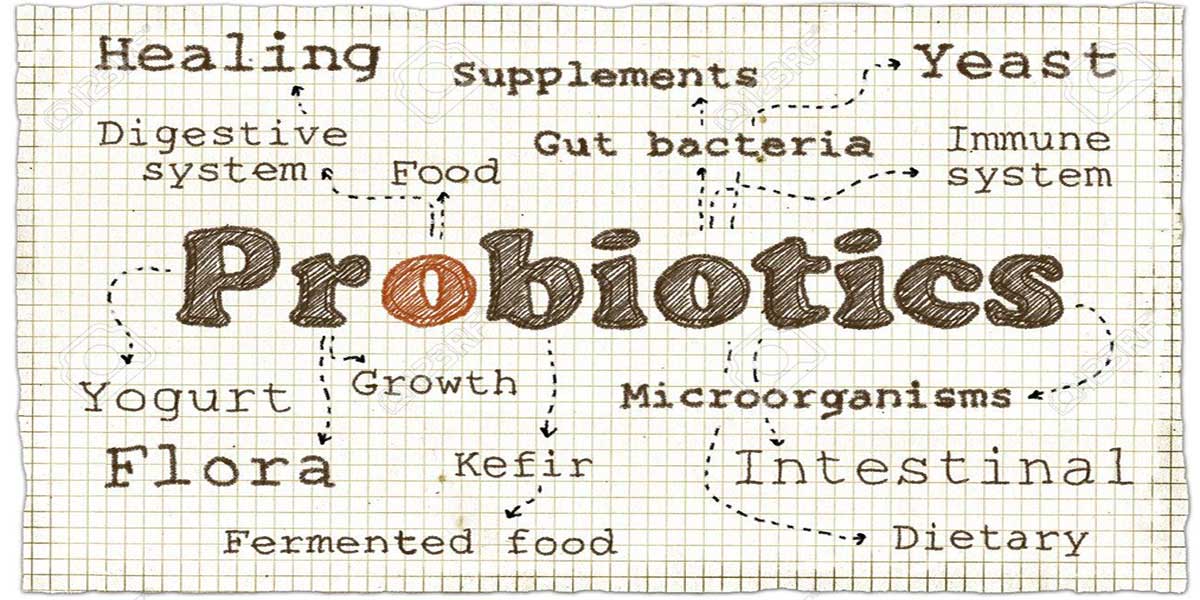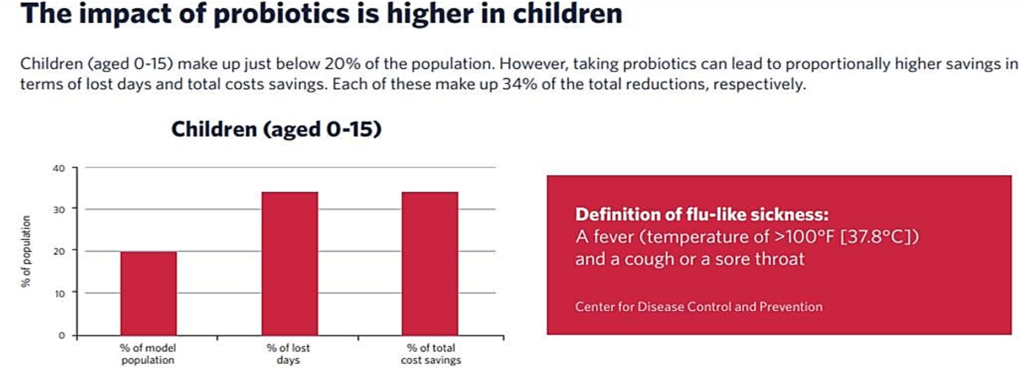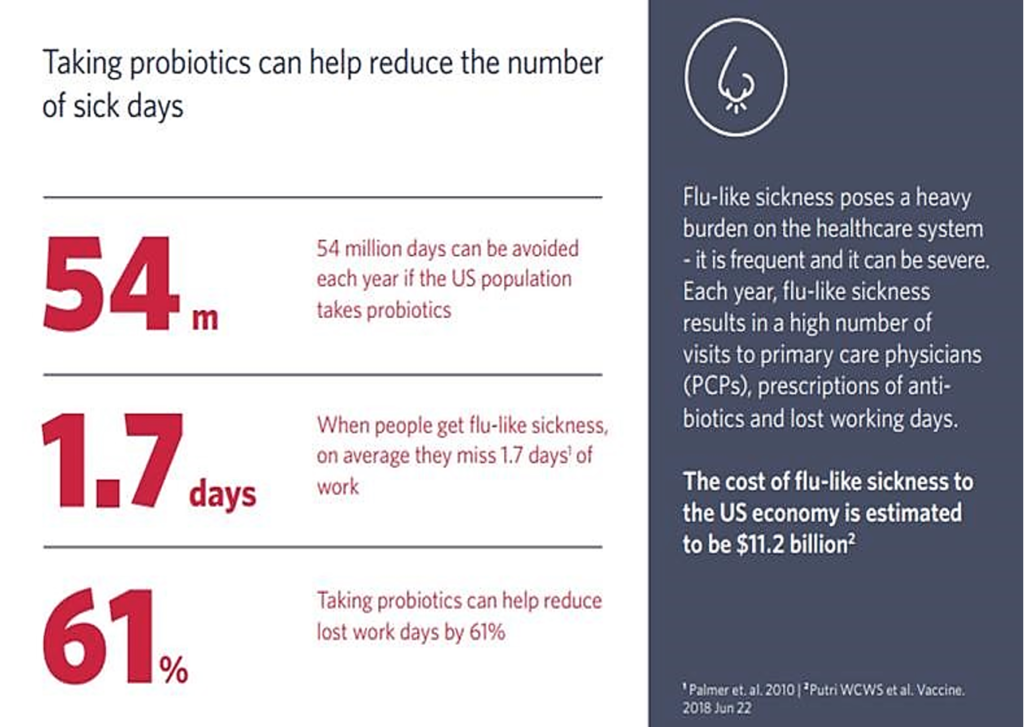This is part of our Ultimate Guide to Private Label Probiotics, a complete overview of the benefits of probiotic supplementation for consumers, some of the different strains and their specific uses, the process of responsibly manufacturing a probiotic product, and what to look for when choosing a probiotic manufacturer.
Probiotics are live microorganisms that, when administered in adequate amounts, confer a health benefit on the host. These microorganisms consist mainly of bacteria, but can also include yeasts. They are naturally present in fermented foods and are sometimes added to food products. They are also available as dietary supplements. As the concentration and reliability of the bacteria found in foods are largely unknown, taking a high-quality probiotic supplement is the best way to ensure you are getting enough of the effective and beneficial bacteria.
Health Benefits of Probiotics

Probiotics are connected to numerous health benefits. If they remain correctly balanced within the body, they may be beneficial for a number of conditions such as irritable bowel syndrome (IBS – a common digestive disorder), reducing gas, bloating, constipation, diarrhea and other symptoms. Studies have consistently demonstrated that probiotics can help support bowel functions and nourish the microflora in the gut. A healthy bowel is the key to preventing many common disorders such as colitis, irritable bowel syndrome and irregularity. Additionally, an increasing number of scientific studies have established a link between gut health, mood and depression. Nourishing a gut flora that can also be a cornerstone to competitively excluding bacteria that can lead to ulcers caused by Helicobacter pylori infections.†
There are many other benefits of probiotics, as well. In addition to aiding in digestive health and helping to boost the metabolism, some of the other most sought-after benefits include the following:
- Inflammation: Probiotics may help to reduce systemic inflammation, a leading driver of many diseases.
- Depression and anxiety:The probiotic strains Lactobacillus helveticus and Bifidobacterium longum have been shown to benefit people suffering from anxiety and depression.†
- Blood cholesterol: Several probiotics have been shown to to support normal, healthy cholesterol levels.†
- Blood pressure: Probiotics have been shown to exhibit a positive effect on blood pressure.
- Skin health: There is some evidence that probiotics can benefit people with acne, rosacea, and eczema, as well as other skin disorders.
- Energy: Belly bacteria helps create B vitamins, which are essential for the production of ATP (science-talk for energy).
- Gender and Weight Loss: In 2014, a paper reports that L. Rhamnosus CG and CGMCC1.3724 helps obese women achieve sustainable weight loss, which was more marked than in men.
- Stress Support: Scientists in Cork have discovered a live bacteria probiotic that can reduce stress and improve mental function and memory in humans. The probiotic has potential use as a way to reduce mild forms of anxiety and stress, say the researchers, based at the APC Microbiome Institute at University College Cork.
- For Children: According to the 2012 National Health Interview, probiotics are the 3rd most popular natural product used by children.

- Immune function: Several probiotic strains have been shown clinically to support immune function; thereby building resistance to infection.†

When people take antibiotics, especially for long periods of time, those antibiotics kill off many of the natural, good bacteria that live within the gut. This can negatively disrupt the optimal balance of bacteria, allowing too many of the harmful bacteria to thrive and causing unpleasant gastrointestinal issues.
Malnutrition, an unbalanced diet, and too many processed foods can also contribute to disrupting the natural balance within the gut. So can some very common but undesirable lifestyle factors such as stress, lack of sleep and surgical procedures.
When the balance of these microorganisms is disrupted, and harmful bacteria outnumber the good bacteria, probiotics can help to replenish the good bacteria and restore a healthy balance to the gut. Without the addition of these probiotics, harmful bacteria can thrive and negatively affect health.
What Are “CFUs”?

CFU stands for Colony-Forming Units, which simply refers to the number of live and active microorganisms that can be found in each serving of a probiotic product. When probiotics are consumed, they begin to colonize the digestive tract with good bacteria, which is why they are referred to as colony-forming units.
The amount of CFUs in a probiotic product can play a big part in how effective that probiotic is. Additionally, the number of CFUs promised on the label may not be the amount actually being delivered when the probiotic is consumed. This can occur for many reasons, but one of the main causes is time.
There are different ways to present CFUs on a probiotic product label. Some labels will state the amount of CFUs that were present “at the time of manufacture”. Probiotics are only beneficial to your health when they are living, working, “Colony Forming Units”. Since probiotics are relatively delicate living microorganisms, inhospitable environments such as too much heat, moisture, light or pressure can kill them fairly easily. So, while there may have been 50 billion CFUs at the beginning of the formulations processing, by the time they are being ingested there may only be 1 billion left… Or maybe a few hundred.
The best-made probiotic supplements will state the CFU count “through expiration”. If they were made by a quality manufacturer, this will indicate that the finished product was tested after it has gone through the manufacturing process, and should ensure that the finished product has retained enough live microorganisms that it can still carry the CFU count it is claiming on the label until it reaches that expiration date.
Stress, lack of sleep, surgical procedures, an unbalanced diet, an excess of processed foods, and the consumption of antibiotics can all kill off many of the natural, good bacteria that live within our gut. When the balance of these microorganisms is disrupted, and harmful bacteria outnumber the good bacteria, probiotics can help to replenish the good bacteria and restore health to the gut. The amount of CFUs in a probiotic product, and identifying how these counts are identified on the product label, can play a big part in how effective that probiotic is.
Key Takeaways
- Probiotics are delicate, living organisms that can provide numerous health benefits when abundant and in balance within the gut.
- Research shows taking probiotics may be helpful in managing symptoms associated with mental health disorders such as depression, anxiety, stress, and memory, among others.
- Because it is difficult to know the concentration and reliability of the naturally-occurring bacteria found in foods, it is best to take a high-quality probiotic supplement to ensure enough of the effective bacteria to provide health benefits are being consumed.
- When considering a probiotic supplement, look for a high CFU count and a statement on the label that this count will be good “through expiration” – not “at time of manufacture”.
Next: ➤ Learn More About the Different Strains of Probiotics Available for Private Label Supplements.

†These statements have not been evaluated by The Food and Drug Administration. This product is not intended to diagnose, treat, cure or prevent any disease.





